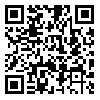Volume 1, Issue 1 (7-2008)
IJMEHM 2008, 1(1): 27-44 |
Back to browse issues page
Download citation:
BibTeX | RIS | EndNote | Medlars | ProCite | Reference Manager | RefWorks
Send citation to:



BibTeX | RIS | EndNote | Medlars | ProCite | Reference Manager | RefWorks
Send citation to:
Paya A. A philosophical assessment of the implications of the issue of human dignity for medical researches. IJMEHM 2008; 1 (1) :27-44
URL: http://ijme.tums.ac.ir/article-1-323-en.html
URL: http://ijme.tums.ac.ir/article-1-323-en.html
Abstract: (12496 Views)
Philosophers of ethics and those who are involved in the debates concerning Medical Ethics have discussed the issue of human dignity and its cluster of meaning from different angles and have suggested many interesting points in this respect. However, a cursory glance at the published works in this field reveals that most of those writers who have contributed to this issue have either based their arguments on notions such as rights or justice, or have used theological doctrines, or have conducted their debates within the frameworks of pragmatic or particularistic ethics. In the present paper, I shall approach the issue from a new viewpoint which is mostly inspired and informed by the ideas of some analytic philosophers.
The main argument of the paper revolves around the pivotal notion of “value of life”. All those who take positions vis-à-vis stem-cell researches and the morality or otherwise of using embryos for such investigations, or those who form opinions concerning the ethicality or otherwise of abortion, or those who try to find satisfactory solutions for the vexing issue of the allocation of limited medical resources, maintain, at least in an intuitive way, that the life of a human organism, in whatever shape or form, has intrinsic value. The life of such an organism whether it is a newly conceived egg or an embryo ready to be implanted in the womb or a foetus whose neurological system has just emerged, or a morally fallen adult, is intrinsically valuable.
The idea that some things or events are valuable in themselves, namely, we respect them not because they serve our interests but because they are intrinsically valuable, is a familiar intuition. We have developed this ‘intuition’ through our long existential experiences. Now if we reflect upon this very intuition we will be able to discover further layers of meaning in it. For example, we realize that from the belief that ‘human’s life is intrinsically valuable’ one cannot conclude that one should multiply human life as much as possible. On the contrary, some of our other intuitions would inform us that at least some parts of the world would be better off if less populated than crowded. Thus the question arises that if the intrinsic value of human life does not mean its multiplication, then how the continuation of human life, once it has appeared, can have intrinsic value? In the present paper I shall try to use the apparatus of analytic philosophy to explore the ways of reconciliation between the two seemingly contradictory notions of ‘the intrinsic value of life’ and ‘the morality of sacrificing life under particular circumstances’.
Keywords: human dignity, intrinsic value of life, medical ethics, realist view of ethics, ethical particularism, stem-cell research, abortion, allocation of medical resources
Type of Study: Research |
Accepted: 2013/09/8 | Published: 2017/09/27
Accepted: 2013/09/8 | Published: 2017/09/27
| Rights and permissions | |
 |
This work is licensed under a Creative Commons Attribution-NonCommercial 4.0 International License. |





